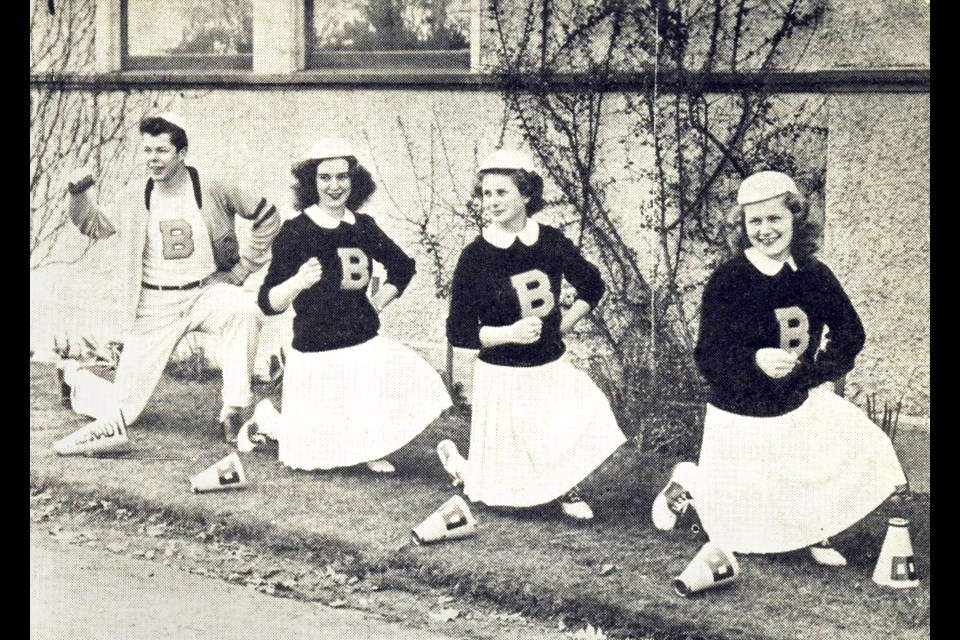As Burnaby grads finish up exams this month and prepare to leave high school for good, a group of their predecessors gathered to reminisce about their own high school graduation – 70 years ago.
Burnaby South High School’s class of ’47 got together at the Riverway Golf Clubhouse Tuesday and looked back at a time before Burnaby was the humming, diverse metropolis it is today.
“Burnaby South was really out in the boonies,” Helen (Silvanovicz) Moysiuk told the NOW.
Fellow 1947 grad John (Jock) Peddie lived at 15th Avenue and Sixth Street on “a bit of a farm,” he said – “It was all bush in those days.”
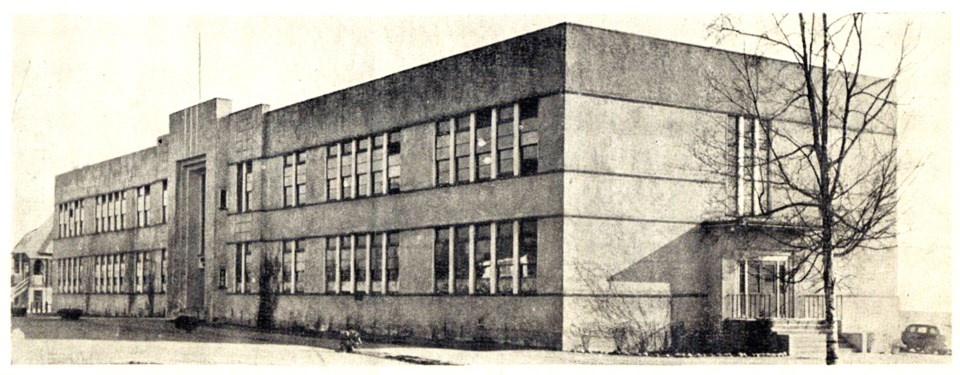
With not much going on in Burnaby in the way of entertainment or shopping, South students in 1947 headed to New Westminster’s busy Columbia Street for a good time, Moysiuk said, and the Burnaby girls were more interested in the sophisticated Duke of Connaught High School boys in New West than in their own.
“If you caught one, you were really lucky,” she said with a laugh.
The T.J. Trapp Technical High School kids, meanwhile, were “poor like us,” Moysiuk said.
When it came to sports teams, Burnaby South High School in 1947 didn’t have the competitive reputation of the Vancouver and New West schools.
“The only thing we had, we had a pretty good hockey team,” said James (Jim) Buttar.
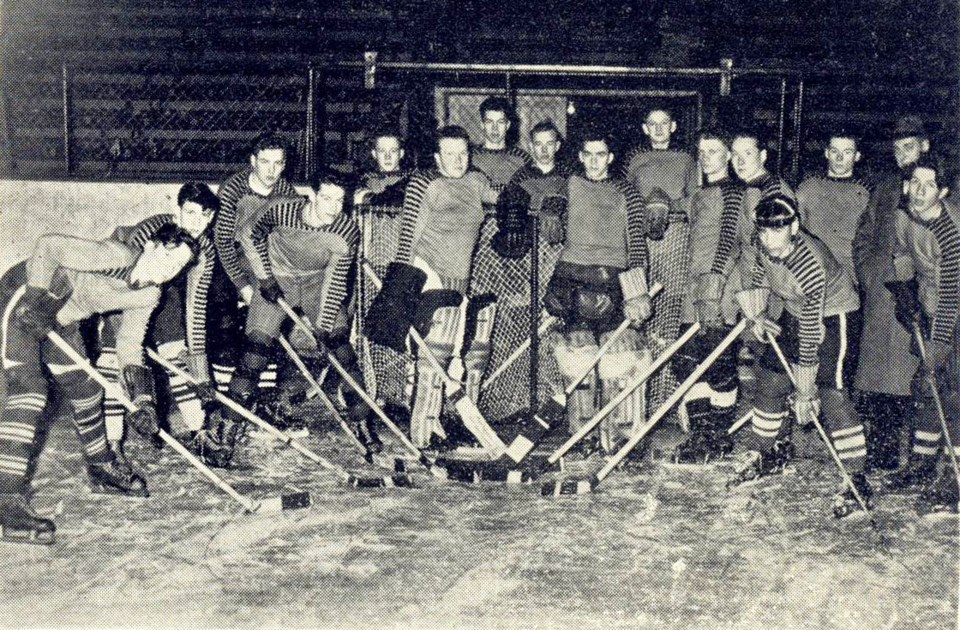
Besides being mostly working class, South Burnaby 70 years ago wasn’t the multicultural hub it is today either.
At school, Moysiuk lopped the Slavic ending off her last name and went by the more Anglo-sounding “Silvan.”
“Everybody who could shorten it did it,” she said.
Gender inequality also meant girls graduating from Burnaby South in 1947 had fewer choices than their 2017 counterparts – especially if they chose the “commercial” instead of the “university entrance” track in Grade 8.
“It was either nursing, school teacher or office work,” said grad Barbara (Brewer) Musceyn. “That was about your choice. Girls didn’t go out like they do now for engineering and all those kinds of things.”
For the boys, meanwhile, a post-secondary education wasn’t always a priority – or a prerequisite for a career.
“At that time I think most of us did the same thing; we went into something we could make a dollar at because we’re all Depression kids,” said James (Jim) McKinnon, who remembers his family spending time on government relief. “I can remember going over to Hastings Street to get a pair of army boots because otherwise I didn’t have any shoes. They didn’t fit worth a damn but nonetheless that’s what you got.”
Many of his classmates stayed with companies their whole working lives, working their way up, McKinnon said.
“I started at the bottom and I was there for 40 years – ended up in management,” Peddie said of his work at a bank.
Buttar dropped out of senior matriculation (Grade 13) when he got a job as an office boy at a forestry company, later Western Forest Products.
He left as president of the company.
“I’ll tell you, I enjoyed every day of my working life,” he said.
Many boys did head off to “varsity,” and pursued careers as doctors and engineers.
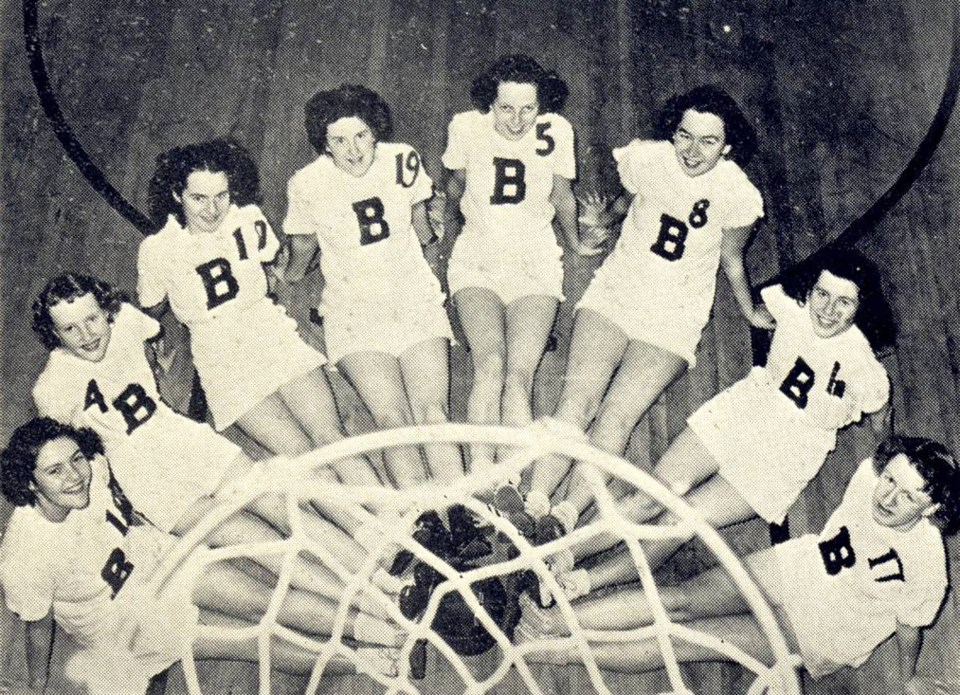
Some girls pushed social expectations too, like Doree (McKee) Piercy, who went on to medical school – one of eight women in a class of 120 at McGill.
She got on well with her male student counterparts, she said, but a few sexist diehards in the medical establishment didn’t make it easy.
“Some of our professors were not very kind,” she said.
“Now there are more women than men in a lot of classes. I think that’s good. There’s no reason why women shouldn’t be in medicine.”
With all the changes at Burnaby South, one constant has remained over the last 70 years: high school was and still is a place where many teens first give their hearts away and get them broken.
“My first love was Harley Cosh,” said Marion (Middleton) Adkins.
The two started “going around” in Grade 7, she said, and carried on a couple years after high school until she broke his heart and married another man.
They’ve kept in touch, though, calling each other on their birthdays every year and seeing each other every 10 years at reunions.
“He’s here,” Adkins said. “Isn’t that a kick?”
Looking back at their 17-year-old selves, graduating from high school 70 years ago, most remaining members of the class of ’47 wouldn’t change a lot, but there are some things they would like to have told themselves.
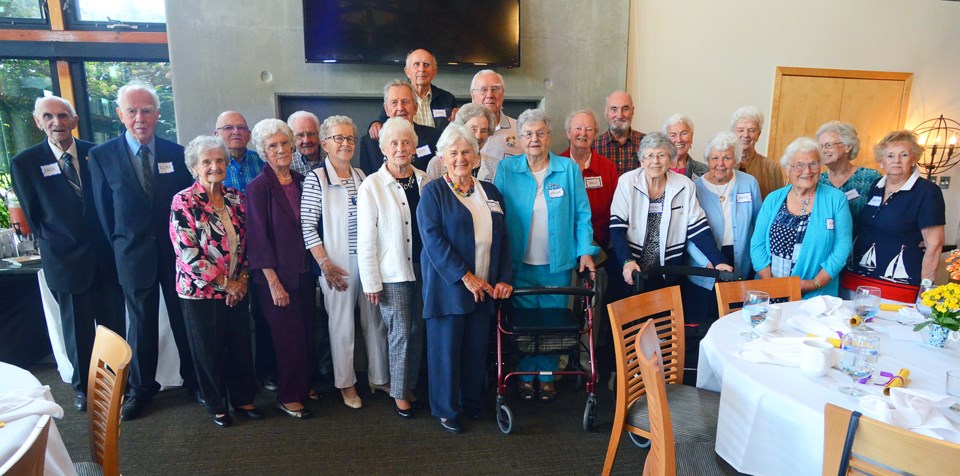
Elaine (Boone) Moonen said she’d tell herself to do a little more volunteer work.
“But you’re so busy at that time, you know, just being pretty,” she said.
Kathleen (Newton) Urban would tell herself to “work a little harder; apply (her)self better.”
“Keep in touch with your friends,” would be Piercy’s message to her younger self, while Stella (Vereska) Voyt would have told herself to pursue her own path.
“If you’re constantly trying to please somebody else, it doesn’t work,” she said. “I think you learn that over time. I don’t think you’re that bright at 17.”
John Connor begged to differ.
“When I was 17 I knew everything, like all teenagers,” he said.
Rose (Cox) Cameron would have pursued a professional golfing career, while Colleen Parkinson would have told herself to “take each day as it comes and not worry too much about the things that are coming.”
